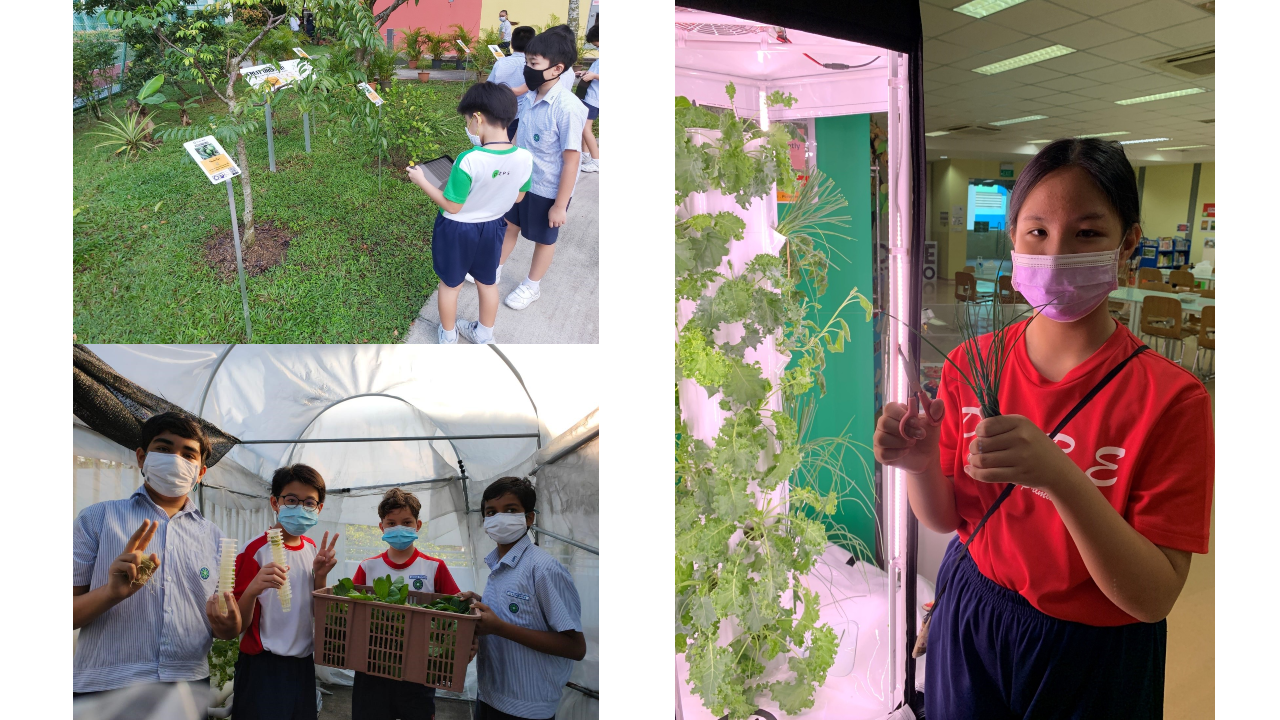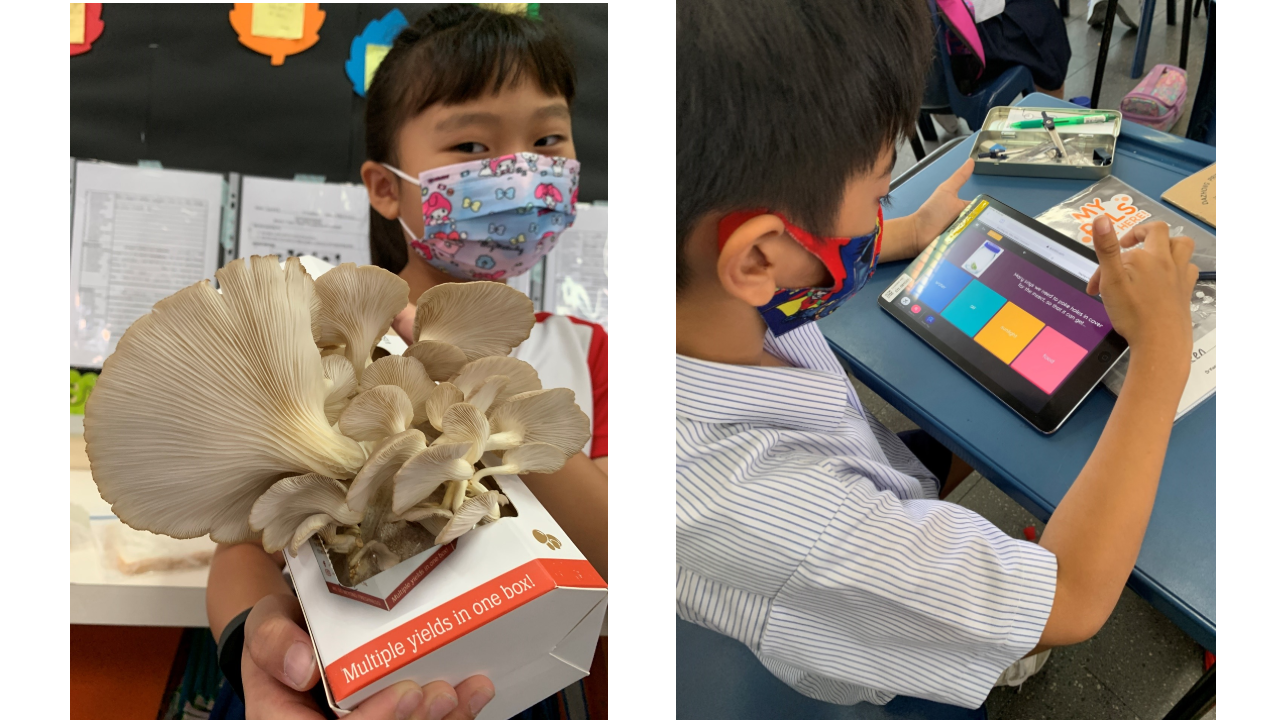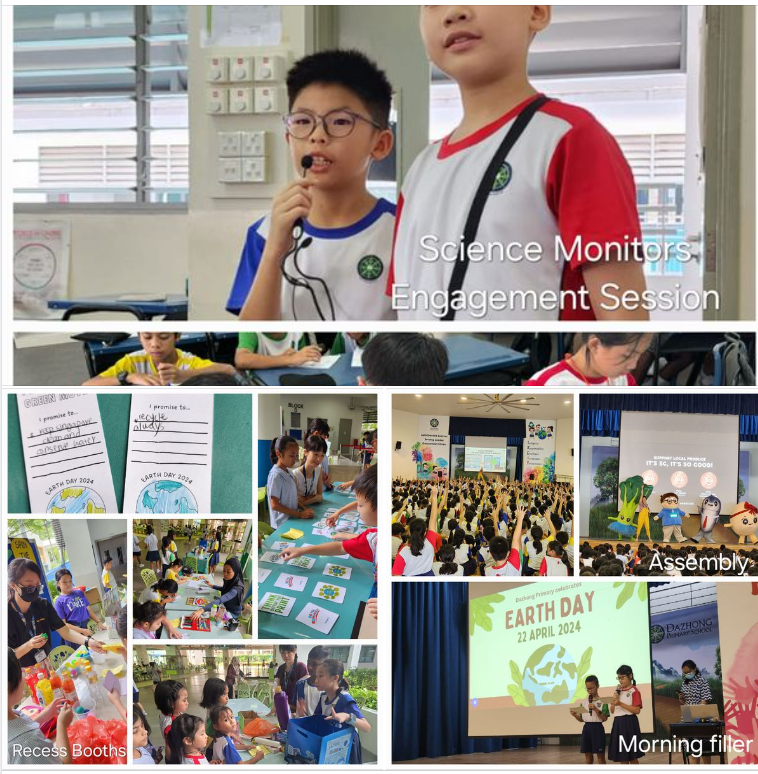Science
Science

Vision:
Inspiring Curiosity, Inquiring like Scientists, Innovating to Serve Science
Mission:
To nurture self-directed learners who are curious, inquiring like Scientists, and a passion to apply Science to serve the community.
Key Approaches and Milestone Programmes to bring about Science Vision of Inspiring Curiosity, Inquiring like Scientists, Innovating to Serve
-
Inspire (Excite) – Dazhong Science believes in promoting students’ natural curiosity, by providing opportunities for students to enjoy the learning of Science, by seeing relevance to everyday phenomena, and meaning in how Science is applied to solve global challenges.
-
Students learn to be Aware of Science around us, through Experiential Learning such as outdoor trails, Assembly Programmes, and Recess Activities.
-
Dazhong's green areas are engineered for self-directed learning (Eco-Garden, Eco-Pond, Inspiration Space, Butterfly Garden, Dazhong Sky Garden, Aeroponics (http://for.edu.sg/aeroponics) to serve as the 3rd teacher to allow appreciation and learning of nature around us.
-
Students learn how current affairs are linked to Science concepts that they learn, for example how reused incineration ash and landfill trash could be used in reclamation for Tuas Port.
-

-
Inquire (Engage) – Experiences are provided in the spirit of scientific inquiry, for students to observe, and evaluate claims and ideas critically based on evidence.
-
Dazhong Science uses the Concrete-Pictorial-Abstract approach, where students do hands-on experiments (Concrete) before linking it to theory in the form of diagrams and words (Pictorial and Abstract)
-
As part of Inquiry, the Predict-Observe-Explain frame is used to actively engage students in the scientific process.
-
Plus-Minus-Interesting is a routine used to stretch students’ critical thinking: e.g. What if everything in the world was waterproof? (Plus) What would be good about it? (Minus) What would be bad about that? (Interesting) Anything interesting that would result?
-
Dazhong Science has a Blended Inquiry approach, where Info-Comms-Technology (ICT) is blended with hands-on experiments to enhance the learning experience. For example, students are equipped with iPads as they go on a nature learning trail, and they can scan the QR Code of Info-Tags in our Eco-Garden to find out more about the Plants.
-
-
Innovate (Evaluate) – After being Inspired, and learning through Inquiry, students are then encouraged to apply science to generate creative solutions to solve real-world problems.
-
Science of Total Defence: Students learn about the Science of Singapore’s 6 Pillars of Total Defence, with the theme of “Together, We Keep Singapore Strong” against the Covid pandemic, and Awareness of the Causes and Effects of Climate Change, how they can take Action as a Concerned Citizen, and being serving leaders by Advocating for others to do their part. Recess booths showed different aspects of Science and Technology in Total Defence, including Upcycled materials for creative toys, and even an interactive Thermal Camera booth.
-
Students use scientific concepts they have learnt to create models and toys to demonstrate.

-
Stretch Programmes
Students with greater interest and aptitude in Science are given opportunities to further their learning, such as through E2K Science, the NUS High Science Oratorical Competition, and the Singapore Primary Science Olympiad.
1. E2K Science
The E2K Science Programme aims to develop scientific inquiry skills and 21st-century competencies such as resilience, critical thinking, and effective communication among high-ability primary pupils. The programme employs twelve pedagogies designed to empower students to become independent learners. Key strategies include encouraging multiple solutions, using relevant tasks, fostering active student participation, and promoting independent thinking through inquiry-based methods.
In Primary 4 and 5, students are presented with open and challenging scientific tasks that excite their curiosity and stretch their thinking. They engage with scientifically oriented questions, learning to evaluate claims critically based on evidence. The programme empowers students to be self-directed learners, curious about how things work and keen to apply their scientific knowledge. They gain awareness of how everyday phenomena connect to scientific concepts and global challenges, think logically, and provide plausible explanations for phenomena. Additionally, students advocate for the joy of learning science by preparing stations for an E2K Challenge Day. The cognitive outcomes include discovering interests, developing strengths, and making meaningful connections, while affective outcomes focus on curiosity, commitment, adaptability, and collaboration.
2. Competitions
Our school provides students with opportunities to participate in a variety
of science and environmental competitions, showcasing their passion and
proficiency in these areas. Students have the chance to engage in the Abbott
Young Scientist Award, the NUS High Oratorical Challenge with presentations
on topics like "Wearable Tech" and "Animal Rights," and the Singapore Primary
Science Olympiad. Our innovative use of thermal cameras and commitment
to environmental education have been recognised by the Ministry of Education.
We also support participation in the Sembcorp Green Wave Competition, where
students work on projects related to waste management and energy conservation,
as well as the National Youth Upcycling Movement, Sustainable South West,
and Green Schools initiatives. Additionally, our involvement in the NParks
Community in Bloom programme and the "Nature through Drama" initiative
helps promote science communication within the community.

